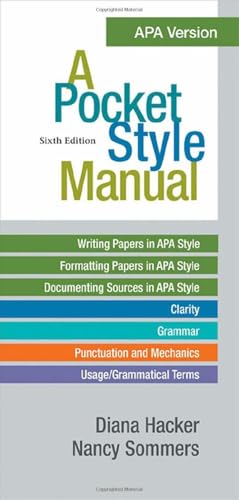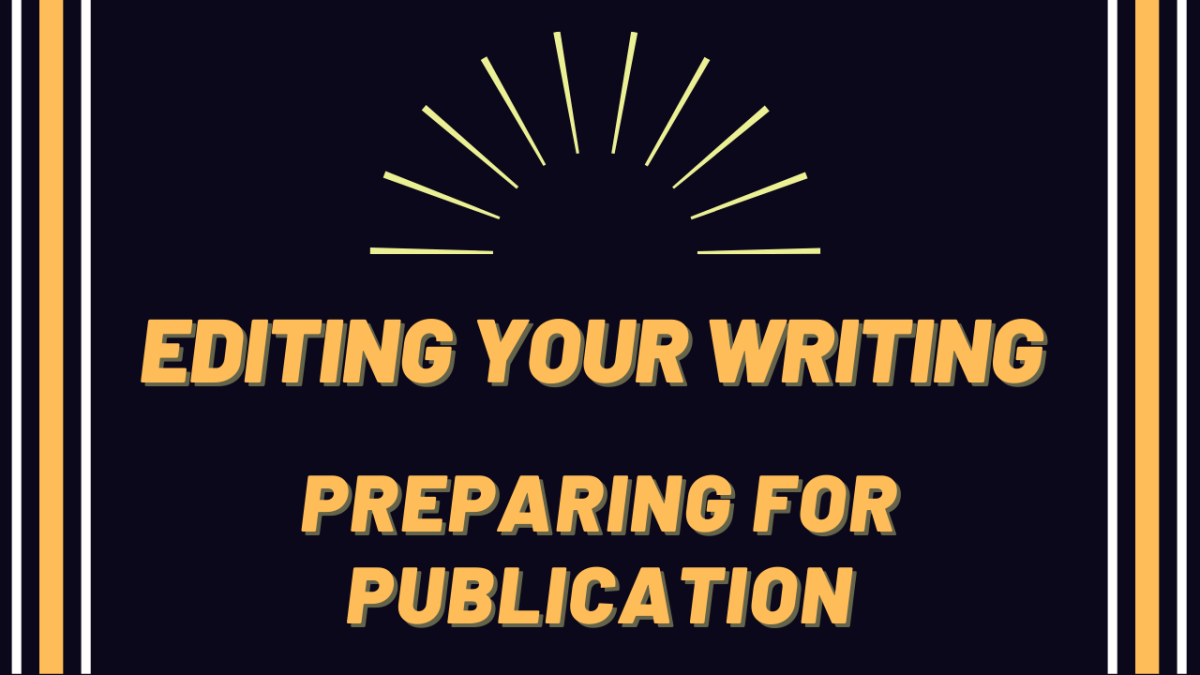An Overview on Quality in Blogging

I have been blogging for a few months now but have been reading blogs for years. As a new blogger, there are a number of aspects concerning the practice that I struggle with. Most of the problems I have are technology and terminology related. From understanding Google Adsense, computer grading systems, and how to optimize my materials so they are found on search engines, to incorporating the social media of Facebook and Twitter for promoting blogs, I am awash in a world that I don’t fully grasp yet. Only time and effort will someday rid me of this ignorance.
But as someone who studies and has studied the English language for well over two decades, I do understand writing and some simple and effective methods to make our writing better. I’m not perfect and here’s a news flash: Nobody is! The English language is far too complex for anyone to ever entirely master. As a result, my first tip to you is to avoid anyone that claims infallibility. Yes, some of us are very, very good, but the bull that is the English language bucks us all from time to time. Anyone who tells you differently is either delusional or a boldfaced liar.

The Two Golden Rules of Writing
My intention with the following series of articles is to give an overview of the current quality of writing among bloggers and a number of tips to improve our writing community, but before I do that, I would like to mention the two most important rules in becoming a good writer. Though I will echo these golden rules throughout the series, I will not be going into great detail on them because they are written about so extensively. Golden rule number one: Read a lot. Not just things that you already know interest you, but quality writing across all the genres. Golden rule number two: Write a lot. You are a machine. Don’t ever stop. Don’t ever let criticism or lack of success slow you down. Keep at it and keep getting better!
Definition of a True Blogger
Now for the focal point of part one of this series, the overall condition of the blogging community. Let me start by defining the “blogging community” we’ll be discussing. I’m not talking about the simple posting of information on social media like Facebook and Twitter. Millions of people do this, and though Facebook and Twitter are employed by most successful bloggers, the vast majority of people open these accounts for personal reasons: to keep up with olds chums, family, and to even make a few extra friends. In addition, the blogging community I’m speaking of in this article does not encompass all the scammers, cheaters stealing articles, and other annoying garbage that is out there.
In this particular instance when I speak of the blogging community, I’m speaking of all the people who are trying to provide reliable information to the masses via informative articles. Those of us trying to break through all the noise on the internet and help people understand the world around them, whether it be through art, technology, sports, entertainment, etc. For example, you want to make beer. You type in “How to make beer.” We’re the ones whose article you click on, and it actually provides you a blog on how to make beer. What a novel concept! We’re the ones who give you what you want, not just a giant toilet bowl to suck in views.
Blogging: The Good News First
Through years of analysis, my overall feelings about the above defined blogging community is very positive. The majority of information produced by these bloggers is accurate and well structured. It is painstakingly researched through real world experience and the reading of literature. Yes, there are a few bloggers who have problems with the basics of structuring materials and conveying ideas, but the overwhelming majority do not.
In addition, for a world supposedly so plagued with grammatical deficiencies, when it comes to the placement of commas, periods, and such, in the blogging community there really isn’t that major of a problem either. Most articles will contain a few commas splices and run-ons, as well as a few commas that are just wayward and some confusion on how to denote possessives, but for the most part, in this regard the articles aren’t in any worse shape than that of articles written by writers working for a corporation and receiving a good yearly salary. Yes, stylistically sometimes bloggers go with punctuation that isn’t as crisp as it could be, but primarily the articles read well and are still grammatically correct.
Formality level is also not much of an issue. Most bloggers pick a formality level and stick with it consistently throughout the article. Since the majority of these blogs are “How to” in nature, the primary formality level employed is conversational. The best “How to” writing should provide an inviting gentleness to the learner, so a conversational tone is entirely appropriate. Though the conversational tone might allow us to use a number of structures that are not conventionally grammatical, as long as we exercise caution in our usages, it is still entirely appropriate for the venue.

Blogging: The Bad News Last
So the overall state of the blogging community is tiptop? Actually, no. There are a number of common mistakes you see in these blogs that make our writing look unprofessional. What is funny to me about the mistakes I see is that they are so readily fixable. For example, I might read a high quality, well-researched blog of around 2,000 words. There may be 50 mistakes in it. That sounds like a lot, but of the 50 mistakes, there may only be 2 or 3 mistake types.
For example, let’s say you have 50 mistakes in your article, and one-third of them involve using the word “no” when you mean “know,” the other third involve using the word “hear” when you mean “here,” and the other third involve using “your” when you mean “you’re.” Effectively you’ve only made one mistake type in the essay. You have problems with homonyms, (words that sound the same or similar but are spelled differently) and now that you know where you have a problem, you know a mistake type that you in particular are prone to. By just becoming aware of one type of problem you have and knowing to look for it, you’ve increased your writing ability exponentially.
I use the example of the basic problem of homonyms because it is a problem that plagues me. Through years of actively looking for my homonym problems, I have become much better, but I still make mistakes. You may not have a homonym problem, but most likely you have some problem type that is particular to you, and most likely it will never go away, but through diligence and understanding, the effect of the problem type can be largely negated.

Why Does All This Matter?
What does it matter if everyone is making certain types of mistakes? How is anyone the wiser? Actually, people do notice your mistakes. It is an interesting phenomenon. When you write something, you know how you meant for it to read. As a result, you are more likely to read it in your head how you meant for it to sound than notice your mistakes. If you don’t believe me, write an article and get it publish ready to your eyes. Have a colleague of comparable skill do the same. More likely than not, if you proof-read one another’s articles, you will both find mistakes that you wouldn’t have found on your own. This is why proof-reading by a peer is so important.
Also, as I mentioned earlier, the types of mistakes that you are prone to are likely different than those of many of your readers. For example, you have a problem with choosing the correct tense use. Most all your readers will have a problem type as well, but it won’t necessarily be in tense use. While they have deficiencies just like you, since your deficiency is different than theirs, they will notice, and it may even hurt the palatability of your article for them.
When people notice problems with your writing, it seems less professional. When your writing seems less professional, it hurts the credibility of your information. Do grammatical and wording problems make your information any less true? Of course not! There are tomes of awful information on the internet that is predominantly without grammatical fault, but perception is important. If you want people to take notice of your good information, it doesn’t have to be in an academic tone, but it needs to read cleanly.
There are two schools of thought on how clear writing impacts blogging. One is from the team mentality: the more good blogs within your blogging community, the more people look to your blog sites for information, which equals more prosperity for everybody. The other is from the “I gotta get mine” mentality: the more people out there with poor writing habits, the more success for you if you don’t have these problems. Either way you look at it, it is beneficial to have adequate writing skills.
What Sorts of Mistakes are Bloggers Making?
The quick answer: as a whole, every mistake that can be made. Any type of writing mistake you can think of is made somewhere at some point by a blogger. The same can be said about any writing community. But is that a very helpful answer? No, entirely too vague. The better answer is to look for trends. Trend-wise, there are relatively few mistake types being made by bloggers on a consistent basis, and the common mistake types for any given article would readily be fixed in a matter of minutes by a good editor, but we’re bloggers, and we don’t get editors, so we need to be able to spot these problems ourselves.
As mentioned earlier, this is the first article in a series. Below is a list of the mistake types I most commonly see in blogs in order of prevalence. Beside them is a brief description of the mistake type. I will be going into more detail about each later in the series.

1. Typos:
Typos are by far the most common mistake type I see in blogs, but the good news, they are the most readily fixable. A typo is a word or phrase that is out of place, most commonly small connector words like “a” or “the.” It can also be a misspelled word or a simple miss-wording. What I mean by simple miss-wording is a word or two out of place, something you could fix easily if it was brought to your attention. The only thing you need to do to fix typos is read over your writing more carefully before you publish.
Writing Problems
Which of the following do you view as your biggest writing obstacle?
2. Homonyms:
These pesky creatures are words that sound the same or similar with different definitions. We all know the usual suspects: “Your” and “You’re,” “There” “They’re” and “Their,” “Whether” and “Weather,” etc., but what people don’t realize is that there are thousands of less common homonyms. Here are just a few: “Kept” and “Kempt,” “Peak” and “Pique,” “Wet” and “Whet.” There are also homonyms that are just downright difficult to get an understanding of, like “Affect” and “Effect,” and “Who” and “Whom.”
There are two major reasons why homonym mistakes happen. The first reason is the easiest to fix. Writers go through spell-check on their computers and don’t pay attention to the correctly spelled word they are choosing, and it turns out it wasn’t the word they wanted to use at all. The second reason is easy to fix but can take a lifetime. The writer isn’t aware that there are two or more similar sounding words with different meanings and spellings. How do you fix this? Always keep a dictionary handy when you write. Read a lot and pay attention to the spelling of words. Take a note of it when you run into a homonym you haven’t seen before. Let other people proof-read your writings, and they can share with you the homonyms they know and vice versa.

3.Tense/Regional Dialect:
As a serious writer, there are many reasons why you would use regional dialect and colloquialisms on purpose for creative effect, but in the context that I am seeing these slang usages, it seems apparent it is not being done on purpose. Tense slang and regional dialect is a good thing and most all of us come from an area with its own special brand. It has made many an author wealthy, from Charles Dickens to Sean Combs, but to be a successful and diverse writer, it helps to be able to tell the difference between the two and know which one you are using.
Some common examples of unintended tense misusage are using the word “Suppose” when you mean “Supposed” and “Seen” when you mean “Saw.” An example of regional dialect is writing “Would of” when you mean “Would have.” The best way to fix a tense problem is to read formal articles, paying special attention to usage and to watch formal programs like the national news and documentaries. A good way to keep up with popular slang is to travel and spend time in various regions and do your best to keep up with the ever changing world of popular culture.
And there you have it. Those are the three writing problems I see most abundantly amongst bloggers. Does that mean you have any of these problems? Maybe so, maybe no, but more likely than not you have issue with at least one of the three. Of course, it could be another issue. Dollars to donuts there is something that gives you fits in the writing process, even if by the time you publish you rarely have a mistake.

Conclusion:
I just want to reiterate that I don’t know it all. Every writer makes mistakes. This series on writing will probably run 4 or 5 articles. As always, I welcome comments, but for an additional level of interaction, I would like you, the reader, to have the opportunity to nitpick my articles throughout the series. It’s a long series and I don’t have an editor. I’ve read many a grammar book and they have editors. I’ve never seen one without an unintended mistake. I’m bound to make a few. If you feel I’ve made a writing error in this article, comment on it and I’ll be glad to give a response regarding if it was something I intended to do or not. If it’s an unintended error, I’ll fix it.
There is more to come, so if you found this article useful, check back for more on writing.










